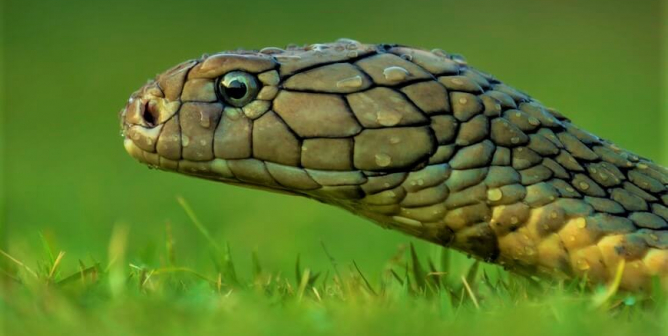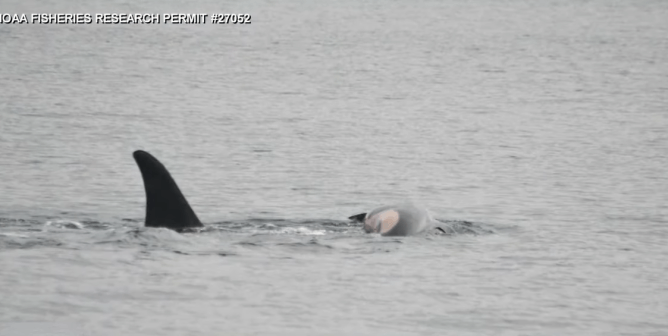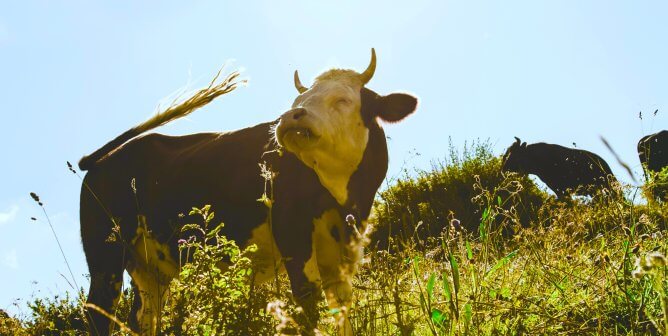2018: The Time for Animal Rights Is Now
With the help of a global army of kind people, PETA has revolutionized the way the world thinks about animal rights. Now, people aren’t just asking if the tanks at SeaWorld are too small—they know that it’s wrong to confine and display intelligent, sensitive orcas at all, and they’re speaking out about it.
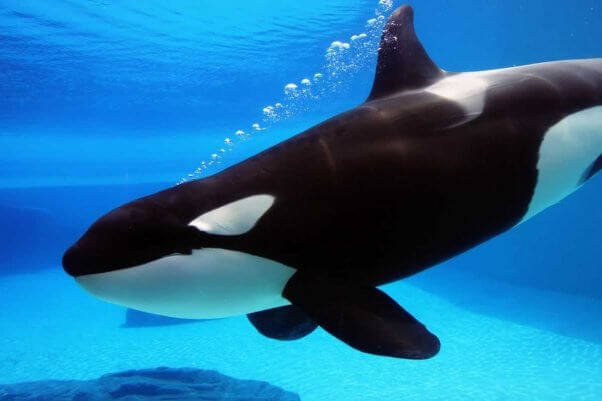
They aren’t just avoiding fur coats—they’re seeking out vegan leather shoes and vegan wool sweaters. They’re not just decrying cruelty to dogs and cats but also demanding an end to the horrific cruelty that animals raised for food endure every day on farms and in slaughterhouses.
From Ringling Bros. and Barnum & Bailey Circus to notorious roadside zoos, animal-abusing businesses are toppling as the public’s cries for all living beings to be treated with compassion and respect grow louder.
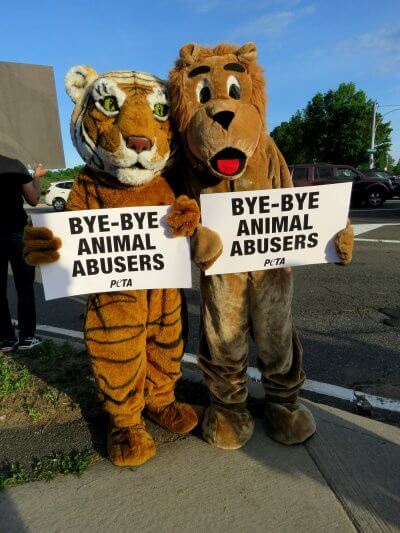
Companies are realizing that exploiting animals is bad business—and they’re responding by dropping fur, leather, and wool. Institutions from the U.S. Food and Drug Administration (FDA) to the U.S. Coast Guard are recognizing that animals are not tools to be used and abused and are embracing superior, cruelty-free methods for tests and training. Dozens of airports and businesses nationwide are saying “no more” to cruel glue traps and all the suffering that they cause.
But there’s still much work to be done. As long as even one rabbit trembles in fear alone in a laboratory cage, as long as a heartbroken mother cow cries out for the calf who’s been torn away from her, and as long as one hungry dog lies chained and forgotten in a filthy backyard, we must never give up and never be silent.
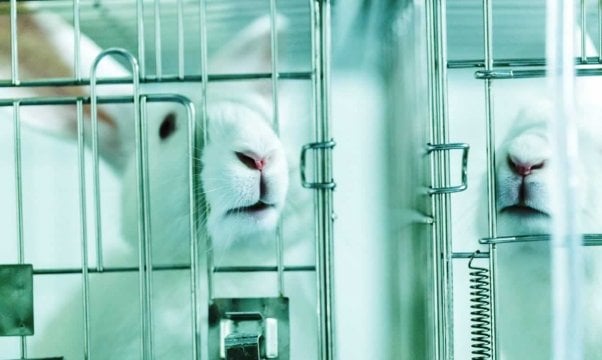
Animals need us to keep working toward the day when all living beings are treated as the unique individuals they are—not as food, fabric, tools, or toys.
Together, we’re getting closer to that day than ever before.
Here’s a look at some of the progress that we’ve made in the last year:
- In 2017, PETA led demonstrations and placed ads informing consumers of the truth about their meat consumption. Powerful videos and ads, such as “Beef in Reverse” and “I’m ME, Not MEAT,” brought PETA’s message to the masses, encouraging them to leave cruelty off their plates. And these efforts are paying off: Vegan offerings in restaurants and grocery stores continue to grow, making a meat-free lifestyle easier than ever! As PETA continues to offer support to vegans and progressive companies alike, it’s no surprise that reports such as the recent “Top Trends in Prepared Foods in 2017” note an increase of up to 600 percent in the number of people who identify as vegan in America in the three-year span between 2014 and 2017.

- In the past year, PETA rescued eight bears from roadside zoos, bringing the five-year total to 65! Instead of pacing back and forth and begging for food from tourists, these animals now roam enriching habitats that are measured in acres, not feet, and enjoy playing, climbing, and making friends.
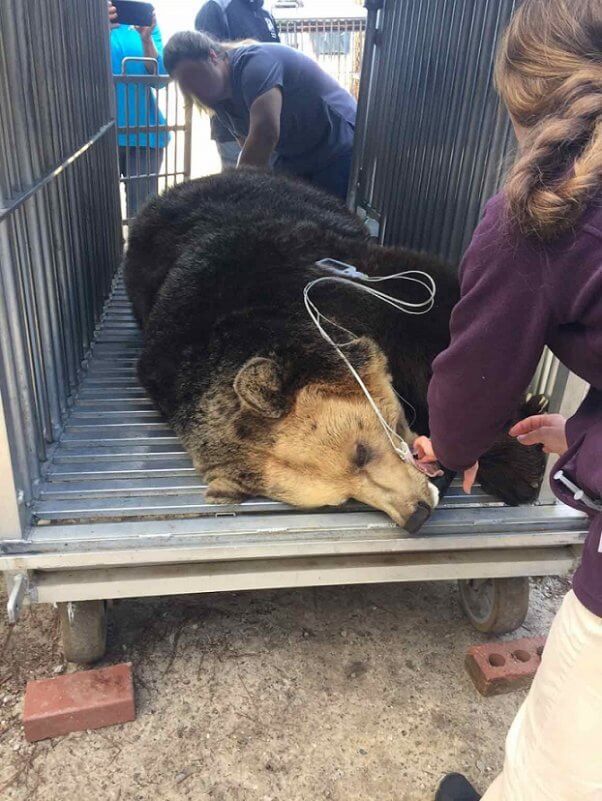
- PETA also came to the rescue of animals in the wake of hurricanes Harvey and Maria. In Texas, our rescue team trudged through floodwaters searching for abandoned, lost, and injured animals and carried dozens to safety. It also helped alleviate pressure on shelters in the area by bringing 67 dogs and cats back to Norfolk, Virginia, for adoption. In Puerto Rico, the team cleared debris, provided animals with food and clean water, scrubbed and repaired pens and enclosures, rescued distressed and injured animals from the streets, drove animals to veterinary clinics for care, and flew back to Norfolk with several homeless dogs for adoption.
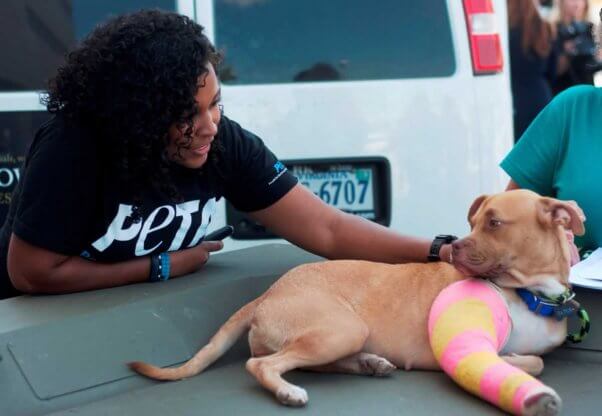
- PETA brought down the big top! In May, Ringling Bros. circus held its final show, after 36 years of PETA protests, U.S. Department of Agriculture complaints, corporate negotiations, celebrity support for our anti-circus campaign, and more. Our work pulled back the curtain on Ringling’s cruelty, which included beating animals, tearing babies away from their mothers, keeping elephants chained, and abusing animals in other ways. Our efforts reduced attendance at the circus to the point of no return.
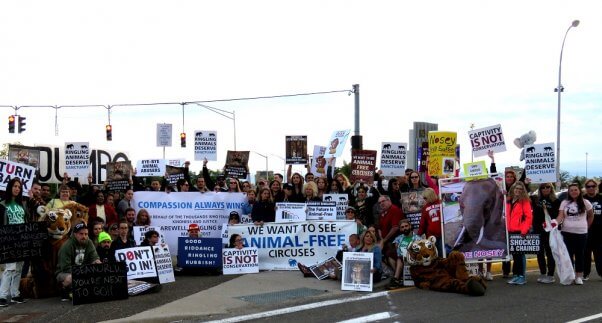
- In other circus victories, New York City banned the use of wild and exotic animals in circuses, showing the world that animals don’t exist for our entertainment, and two states—New York and Illinois—banned all elephant acts.
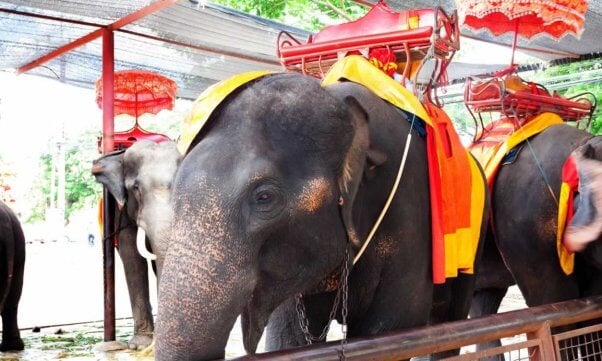
- After PETA and others filed a lawsuit, the U.S. District Court in Utah struck down the state’s “ag-gag” law, which criminalized the work of undercover eyewitnesses on factory farms and in slaughterhouses. The court declared the statute unconstitutional because it violated the free-speech rights of investigators and journalists, and the state was ordered to pay our attorneys’ fees.
- For the first time, the FDA accepted results from non-invasive human tests, instead of cruel experiments on animals, for personal lubricants. With the help of PETA scientists, personal-lubricant company Good Clean Love submitted test results from human volunteers in place of two required animal experiments, and its product was approved. This precedent-setting victory came after years of urging from PETA and a meeting in which we encouraged the FDA to allow lubricant companies to test their products on human volunteers instead of animals. We’re now working with other lubricant companies to help them switch to non-animal tests.
- Following pressure from PETA and efforts from U.S. Rep. Lucille Roybal-Allard (D-Calif.), the U.S. Coast Guard became the first branch of the military to suspend the shooting, stabbing, and killing of animals in trauma training drills while it studies available human simulators and other non-animal training methods that could be used instead. The Coast Guard confirmed that the moratorium came into effect after a PETA exposé prompted an official review by the service branch.
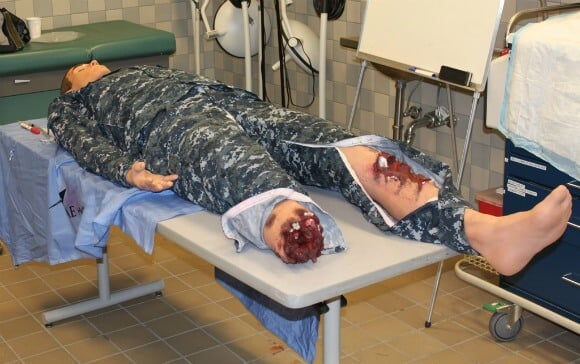
- Two years after PETA, a Tesla shareholder, spoke at the company’s 2015 annual meeting and urged it to reduce its carbon footprint by using only vegan leather, the company switched to vegan leather seats in all its vehicles.
- This was also a big year for PETA’s efforts to remove fur from runways and retail shops. Gucci, BCBG Max Azria, and Michael Kors all banned fur. Gucci’s CEO and president, Marco Bizzarri, said, “I don’t think [fur is] still modern.” The writing is on the wall: Today’s shoppers no longer want to buy or wear the skins of animals who were caged and then electrocuted or bludgeoned to death.
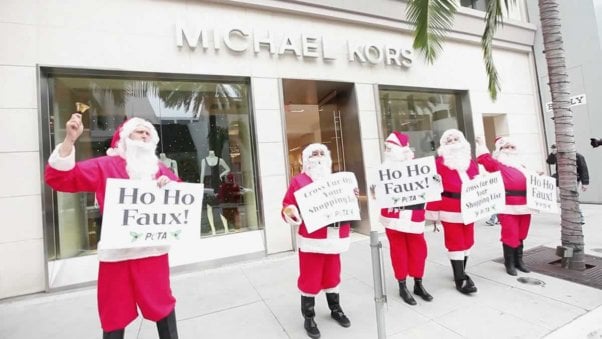
- The leading fashion-design college in the U.S., Parsons School of Design, ended a nearly 15-year partnership with Saga Furs, through which it promoted career opportunities and fur-industry information. Now, the school has cut all sponsorships by and student incentives from fur companies and will host a series of panels with PETA on vegan fashion and sustainable design instead.
- Following PETA’s exposé of horrific conditions and neglect at The Pet Blood Bank, Inc., in Cherokee, Texas, the blood farm closed its doors and transferred 151 dogs into adoption programs. PETA is now working hard to get regulations passed to ensure that all blood for emergency transfusions comes from real donors, not from imprisoned, miserable dogs.
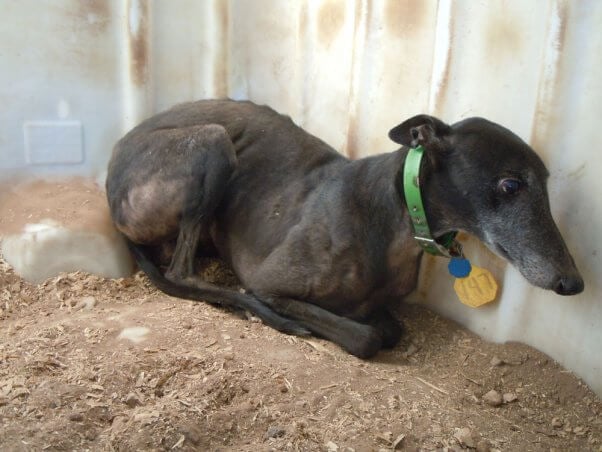
Every one of these victories occurred because caring, determined people refused to look away, give up, or stay silent while animals suffered. Until every cage is empty, every chain is broken, and every animal is treated with dignity, PETA will never stop. Will you join us?

